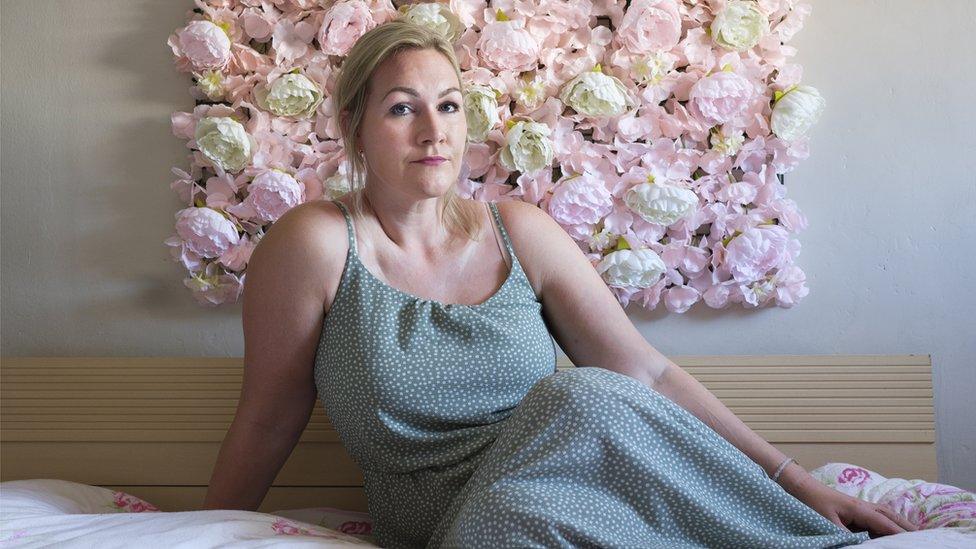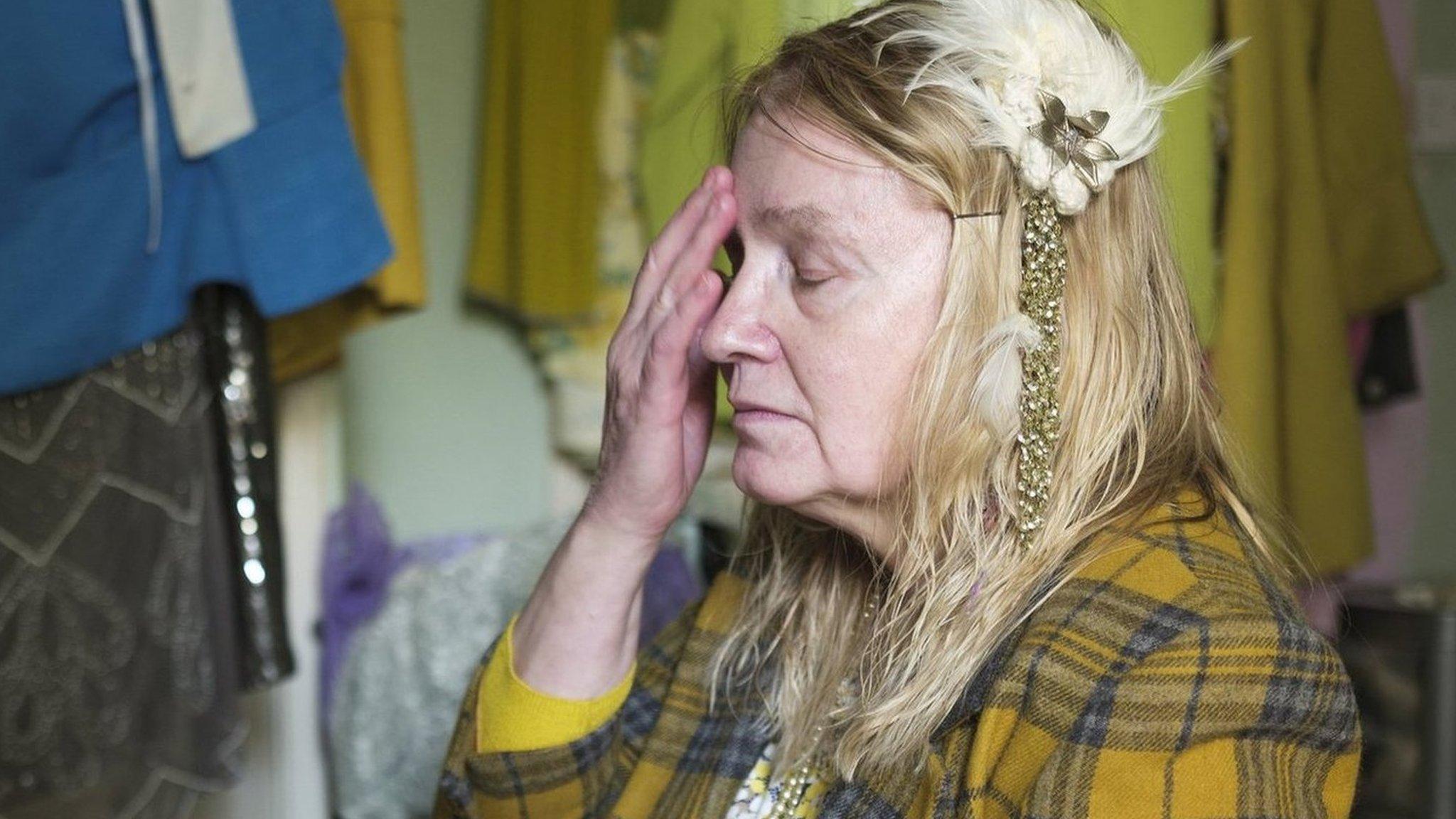Widower asked to leave Glasgow flat weeks after wife's death
- Published

Joost and Stacey had been together since 2013
A widower who lost his wife to cancer last month faces being ejected from his housing association flat.
Joost ten Wolde was asked to leave the Glasgow property he shared with wife Stacey just 14 days after her death.
Stacey, 39, died only six weeks after she signed an agreement on the ground-floor flat - but had not declared her husband was a member of the household.
Glasgow West Housing Association (GWHA) has now rejected his bid to take over the tenancy.
It said it was providing Mr ten Wolde with housing advice.
The widower, who is a Dutch national, said his wife would have thought it was an unfair system.
"I just hope my story can help other people who are going through the same situation," he said.

Stacey and Joost on their wedding day in March 2022
Mr ten Wolde, an engineer, married Stacey O'Brien in March 2022 after being together for more than nine years.
Stacey had Li-Fraumeni Syndrome, which makes a person susceptible to developing cancer. Her husband said he became her primary carer in the last 18 months of her life.
The couple were featured on BBC Scotland in April as part of a university study on poverty during terminal illness.
It became harder to live in her high rise flat as her condition worsened. After multiple attempts, she was successful in applying for a ground-floor flat in Glasgow in February this year.
Stacey signed the tenancy agreement on 27 February. However, she did not add her husband's name to the agreement or declare that he was moving in to the property.
Days before she was due to move in, she was admitted to hospital.
"She signed the contract and it made her so incredibly happy," said Mr ten Wolde.
"I wanted it to be her dream house. Even when she was in the Marie Curie hospice, I was moving things in and painting it for her.
"But at the end, she was getting sicker. When I said I needed to get a ramp installed, she said: 'Don't bother'. I realised then it was at the end."

Stacey featured in a Glasgow University study on poverty during terminal ilness
Stacey died at the hospice on 14 April.
On 26 April, Mr ten Wolde received an email from Glasgow West Housing Association telling him he must return the keys 14 days after her death.
The email added: "After this date a daily rent will be charged until all keys and fobs have been received."
He applied for succession of tenancy, but this was rejected on Thursday.
In a letter seen by BBC Scotland, GWHA told him it was "satisfied" the flat in Colebrooke Street was "not your only or principal home and you are not a qualified person to succeed the tenancy".
Mr ten Wolde said he had a "postal address" in the Netherlands. He was hoping to stay at the property in Glasgow for three months "to grieve" before returning to his homeland in the summer.
Human factor 'is gone'
He continued: "I don't have any problem paying two or three months' rent ahead, but let me stay here and move slowly at my own pace.
"I just lost my wife and then three days before the funeral I get an email saying I had to leave the house.
"The human factor is completely gone."
The housing association based its decision on current housing legislation found in the Housing (Scotland) Act 2001.
In law, a person is entitled to "succession" of a social housing tenancy if they are deemed a "qualifying person" such as a spouse, joint tenant or a family member.
In some cases, an applicant may have to prove they have lived at the property for at least 12 months.

Joost ten Wolde lost his wife Stacey to cancer in April
Mike Dailly, a solicitor advocate at Govan Law Centre, said he believed that the law treated people differently if they were either a spouse or a civil partner.
He said the requirement for someone to have lived in the property for 12 months did not apply if they were a spouse.
"There is no period of having to live in the property. The test is simply whether it was your only or principal home as at the date of the death of the tenant," he said.
GWHA said it was obliged to make sure its decision complied with legislation.
It said it needed evidence of occupancy of the property when there was an application for succession.
"When a housing application is made to GWHA, full details of all household members are requested," it said.
"The importance of this information is confirmed before an offer of housing is made; at the time of viewing the property, and again when the tenant signs the legally binding Scottish Secure Tenancy Agreement.
"The importance of keeping this information up to date during the course of the tenancy is also explained."
It said it was continuing to liaise with the family and was providing housing advice and support.
Related topics
- Published25 April 2023

- Published18 February 2022
